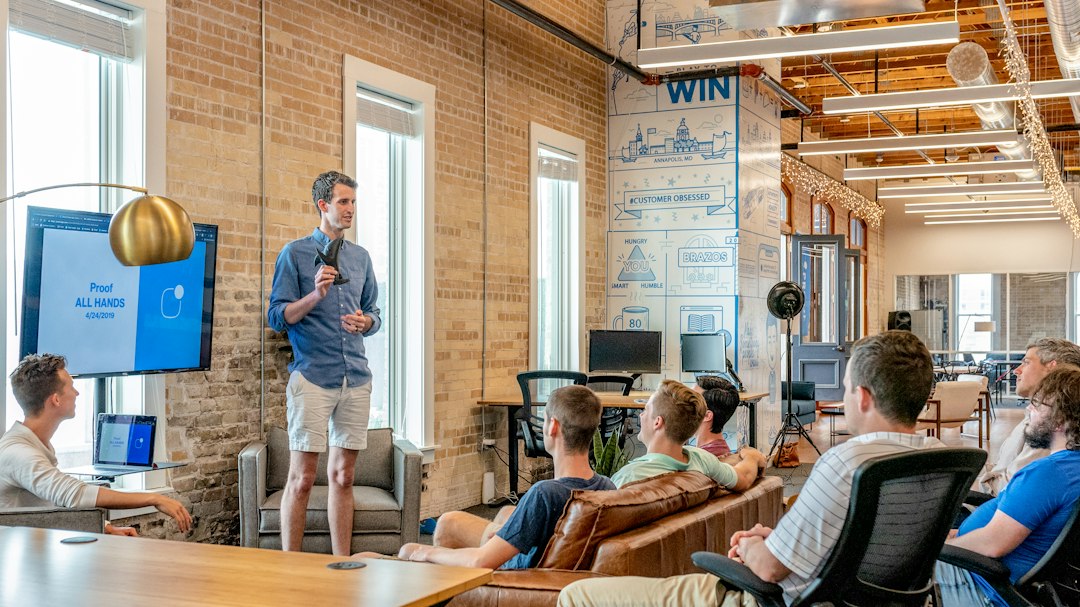WhatsApp has become one of the most popular messaging apps in the world, with over 2 billion monthly active users. While it was initially designed for personal communication, businesses have started to recognize the potential of WhatsApp as a powerful marketing and customer communication tool. With its wide reach and high engagement rates, WhatsApp offers businesses a unique opportunity to connect with their customers in a more personal and direct way.
One of the key reasons why WhatsApp is important for businesses is its ability to facilitate real-time communication. Unlike traditional forms of communication such as email or phone calls, WhatsApp allows businesses to have instant conversations with their customers. This makes it easier for businesses to address customer queries, provide support, and build stronger relationships with their customers.
Furthermore, WhatsApp also offers a range of marketing features that businesses can leverage to promote their products and services. From sending promotional messages and offers to running contests and giveaways, WhatsApp provides businesses with a variety of tools to engage with their audience and drive sales.
Key Takeaways
- WhatsApp is becoming increasingly important for businesses to connect with customers.
- A fashion retailer boosted sales through WhatsApp marketing, while a restaurant increased footfall with promotions.
- A beauty brand built brand awareness with WhatsApp contests, and a travel company provided personalized customer service.
- A real estate agency leveraged WhatsApp for lead generation, and a fitness studio improved customer engagement with messaging.
- A financial services provider used WhatsApp for secure communication, and a non-profit organization raised awareness and funds with campaigns.
- The future of WhatsApp for business marketing and communication is promising.
Case Study 1: How a Fashion Retailer Boosted Sales with WhatsApp Marketing
A fashion retailer in the United States recently used WhatsApp as part of their marketing strategy to boost sales. They created a broadcast list on WhatsApp and added their existing customers to it. They then sent out regular updates about new arrivals, sales, and discounts directly to their customers’ WhatsApp accounts.
The results were impressive. The fashion retailer saw a significant increase in sales after implementing this WhatsApp marketing strategy. Customers appreciated the convenience of receiving updates directly on their phones and were more likely to make purchases as a result. The retailer also noticed an increase in customer loyalty, as customers felt more connected to the brand through this personalized form of communication.
Case Study 2: How a Restaurant Increased Footfall with WhatsApp Promotions
A restaurant in India wanted to increase footfall during weekdays when business was typically slower. They decided to use WhatsApp to promote special offers and events to their customers. They created a WhatsApp group and invited their customers to join. In this group, they shared exclusive discounts, limited-time offers, and updates about upcoming events.
The restaurant saw a significant increase in footfall during weekdays after implementing this WhatsApp promotion strategy. Customers appreciated the personalized offers and felt more inclined to visit the restaurant during the week. The restaurant also benefited from increased customer engagement, as customers would often share their positive experiences in the WhatsApp group, attracting even more customers.
Case Study 3: How a Beauty Brand Built Brand Awareness with WhatsApp Contests
A beauty brand in Brazil wanted to build brand awareness and engage with their target audience. They decided to run contests and giveaways on WhatsApp to achieve these goals. They created a WhatsApp broadcast list and encouraged their customers to participate in the contests by sending their entries via WhatsApp.
The beauty brand saw a significant increase in brand awareness as a result of these WhatsApp contests. Customers were excited to participate and share the contests with their friends and family, leading to a wider reach for the brand. The contests also helped the beauty brand collect valuable customer data, such as email addresses and phone numbers, which they could use for future marketing campaigns.
Case Study 4: How a Travel Company Used WhatsApp to Provide Personalized Customer Service
A travel company in Spain wanted to provide personalized travel recommendations and support to their customers. They decided to use WhatsApp as a communication channel for this purpose. Customers could reach out to the travel company via WhatsApp for assistance with booking flights, hotels, and activities.
The travel company saw a significant improvement in customer satisfaction after implementing this WhatsApp customer service strategy. Customers appreciated the convenience of being able to communicate with the travel company directly on their phones, and they felt that their needs were being addressed more efficiently. The personalized recommendations also helped customers make more informed decisions about their travel plans.
Case Study 5: How a Real Estate Agency Leveraged WhatsApp for Lead Generation

A real estate agency in the United Kingdom wanted to generate more leads and schedule property viewings. They decided to use WhatsApp as a lead generation tool. They created a WhatsApp business account and added a click-to-chat button on their website, allowing potential customers to initiate conversations with the agency via WhatsApp.
The real estate agency saw a significant increase in lead generation after implementing this WhatsApp strategy. Potential customers found it more convenient to reach out to the agency via WhatsApp, and the agency was able to respond to inquiries in a timely manner. The personalized nature of the conversations also helped build trust with potential customers, increasing the likelihood of them scheduling property viewings.
Case Study 6: How a Fitness Studio Improved Customer Engagement with WhatsApp Messaging
A fitness studio in Australia wanted to improve customer engagement and motivation. They decided to use WhatsApp to send workout plans, motivational messages, and updates to their customers. Customers could opt-in to receive these messages and updates via WhatsApp.
The fitness studio saw a significant improvement in customer engagement after implementing this WhatsApp messaging strategy. Customers appreciated the personalized workout plans and motivational messages, which helped them stay motivated and committed to their fitness goals. The updates also kept customers informed about upcoming classes and events, leading to increased attendance.
Case Study 7: How a Financial Services Provider Used WhatsApp for Secure Communication
A financial services provider in Germany wanted to provide secure communication channels for their clients. They decided to use WhatsApp as a secure messaging platform. They created a WhatsApp business account and invited their clients to communicate with them via WhatsApp for sensitive financial matters.
The financial services provider saw a significant improvement in client satisfaction after implementing this WhatsApp communication strategy. Clients appreciated the security features of WhatsApp, such as end-to-end encryption, which ensured that their sensitive information was protected. The convenience of being able to communicate with their financial advisor via WhatsApp also made the process more efficient and streamlined.
Case Study 8: How a Non-Profit Organization Raised Awareness and Funds with WhatsApp Campaigns
A non-profit organization in India wanted to raise awareness about their cause and generate funds. They decided to use WhatsApp as a platform for their campaigns. They created a WhatsApp group and invited their supporters to join. In this group, they shared updates about their projects, success stories, and donation requests.
The non-profit organization saw a significant increase in awareness and funds after implementing these WhatsApp campaigns. Supporters appreciated the regular updates and felt more connected to the organization through this direct form of communication. The convenience of being able to donate directly via WhatsApp also made it easier for supporters to contribute to the cause.
The Future of WhatsApp for Business Marketing and Communication
WhatsApp has become an essential tool for businesses looking to enhance their marketing and communication strategies. The case studies mentioned above highlight the various ways in which businesses can leverage WhatsApp to achieve their goals, whether it’s boosting sales, increasing footfall, building brand awareness, providing personalized customer service, generating leads, improving customer engagement, ensuring secure communication, or running fundraising campaigns.
As WhatsApp continues to evolve and introduce new features for businesses, the potential for growth and innovation in business marketing and communication is immense. Businesses should consider incorporating WhatsApp into their overall marketing strategy to take advantage of its wide reach, high engagement rates, and personalized communication capabilities. By doing so, they can build stronger relationships with their customers, drive sales, and stay ahead of the competition in an increasingly digital world.
Check out this fascinating article on how businesses are leveraging WhatsApp to boost sales and enhance brand awareness. The article explores various case studies and provides valuable insights into the strategies employed by successful companies. From small startups to established enterprises, WhatsApp has proven to be a powerful tool for engaging customers and driving conversions. To learn more about this innovative approach, click here.
FAQs
What is WhatsApp?
WhatsApp is a messaging app that allows users to send text messages, voice messages, make voice and video calls, share images, documents, and other media.
How are businesses using WhatsApp?
Businesses are using WhatsApp to communicate with customers, promote their products and services, and drive sales and brand awareness.
What are some examples of businesses using WhatsApp?
Some examples of businesses using WhatsApp include food delivery services, e-commerce stores, travel agencies, and healthcare providers.
How can businesses use WhatsApp to drive sales?
Businesses can use WhatsApp to send personalized messages to customers, offer exclusive deals and promotions, and provide customer support.
What are the benefits of using WhatsApp for business?
The benefits of using WhatsApp for business include increased customer engagement, improved customer satisfaction, and higher conversion rates.
Is WhatsApp secure for business use?
WhatsApp uses end-to-end encryption to protect user data, making it a secure platform for business use. However, businesses should still take precautions to protect sensitive information.

